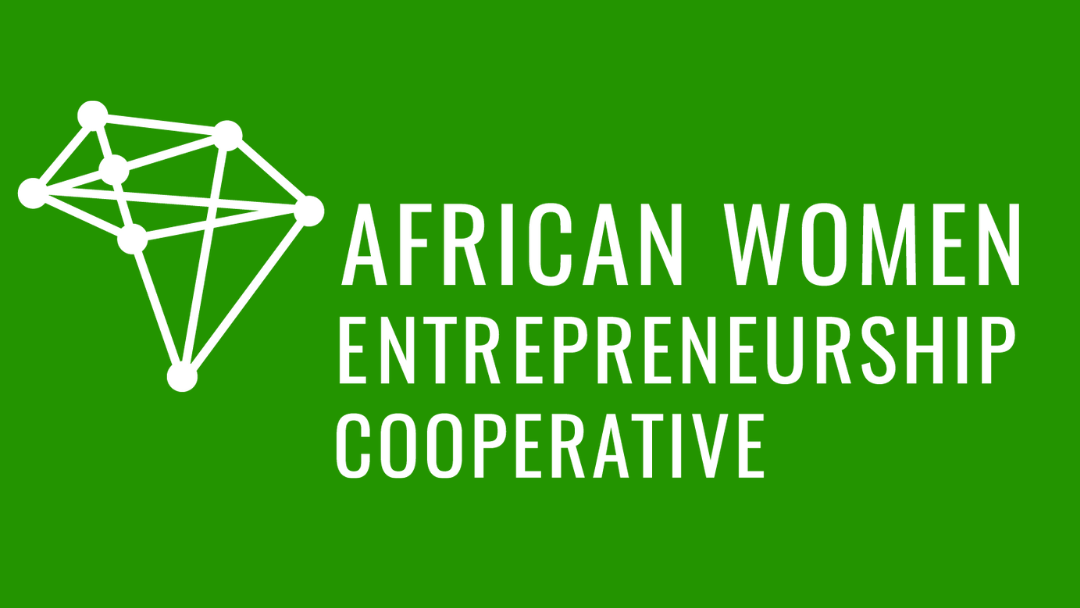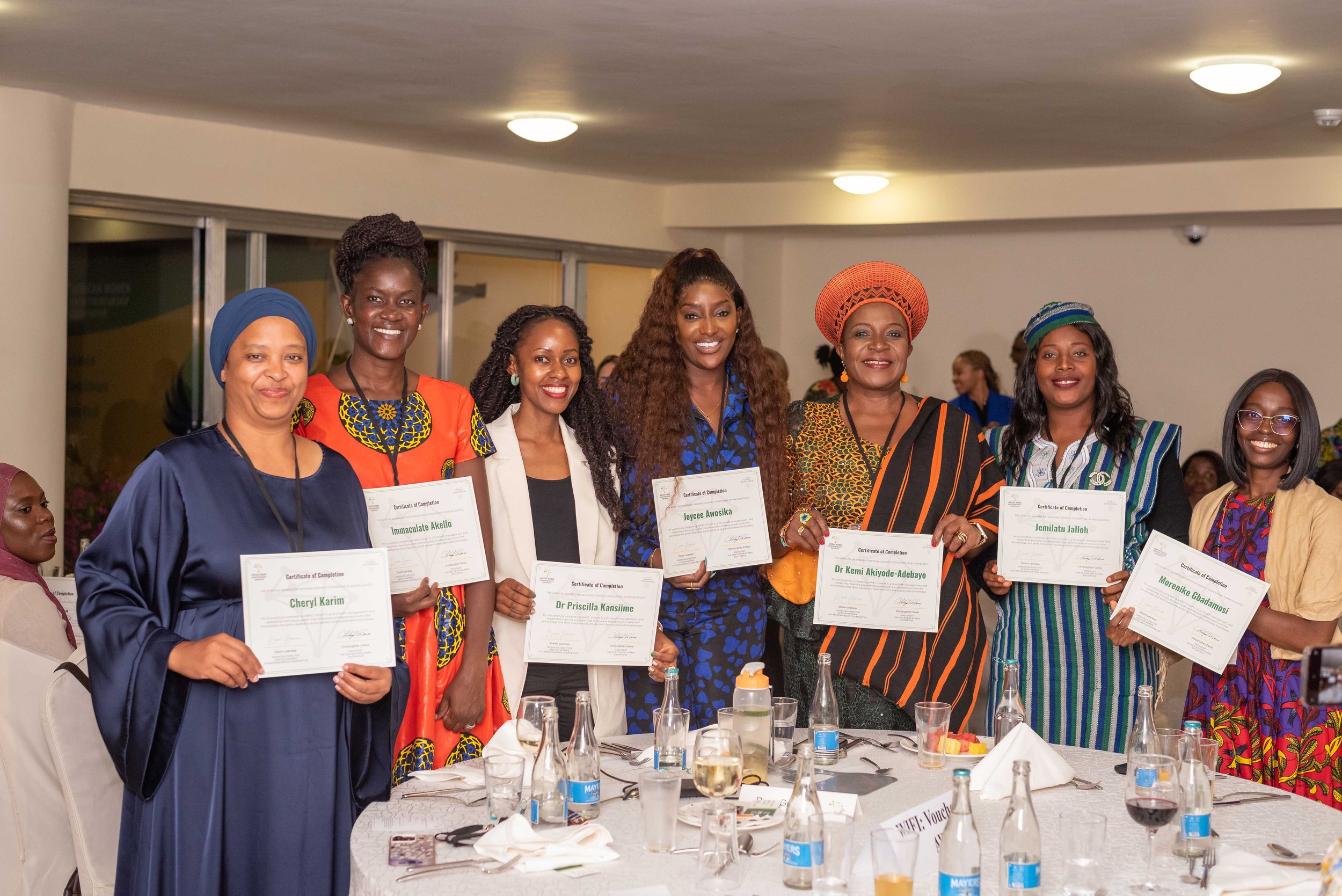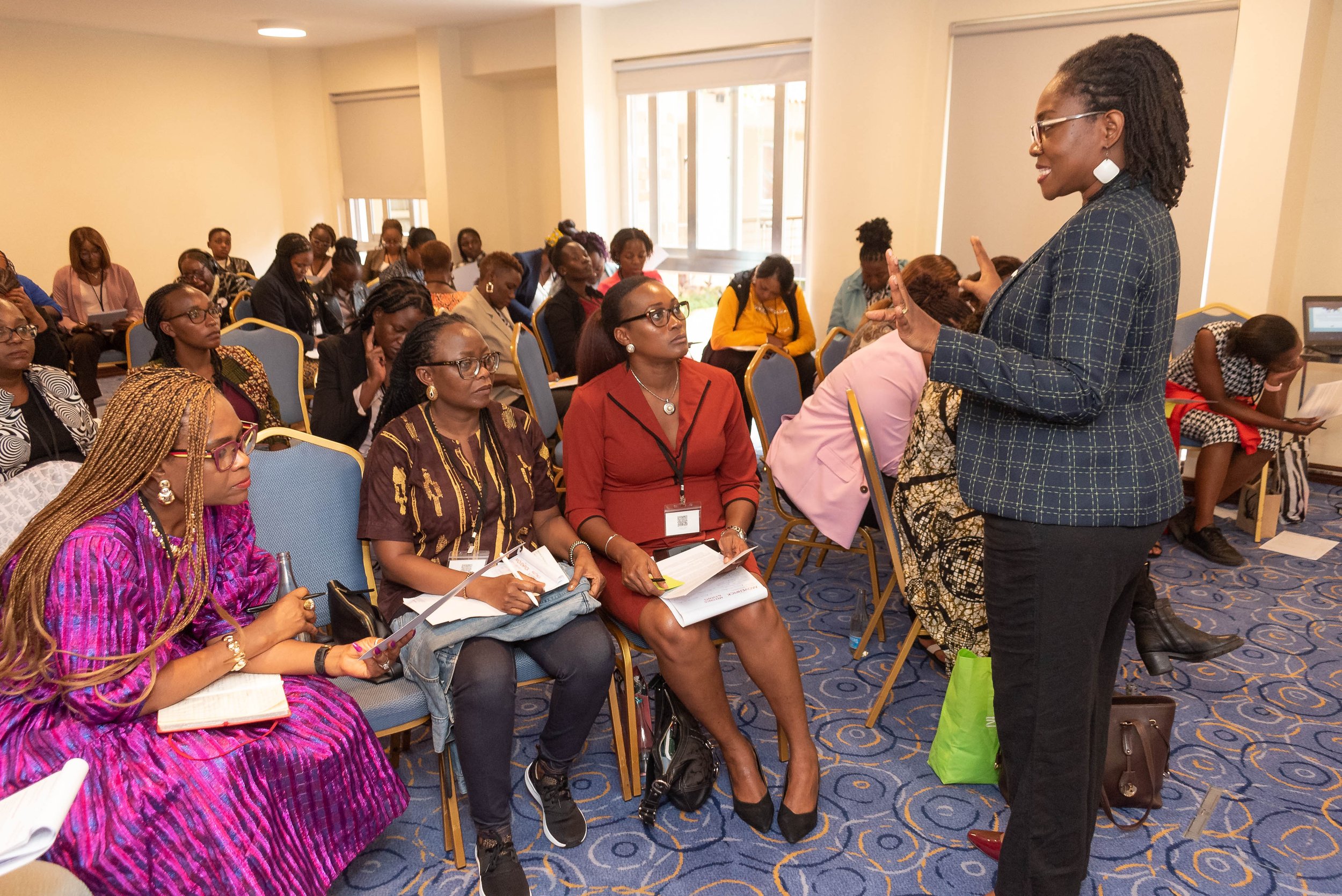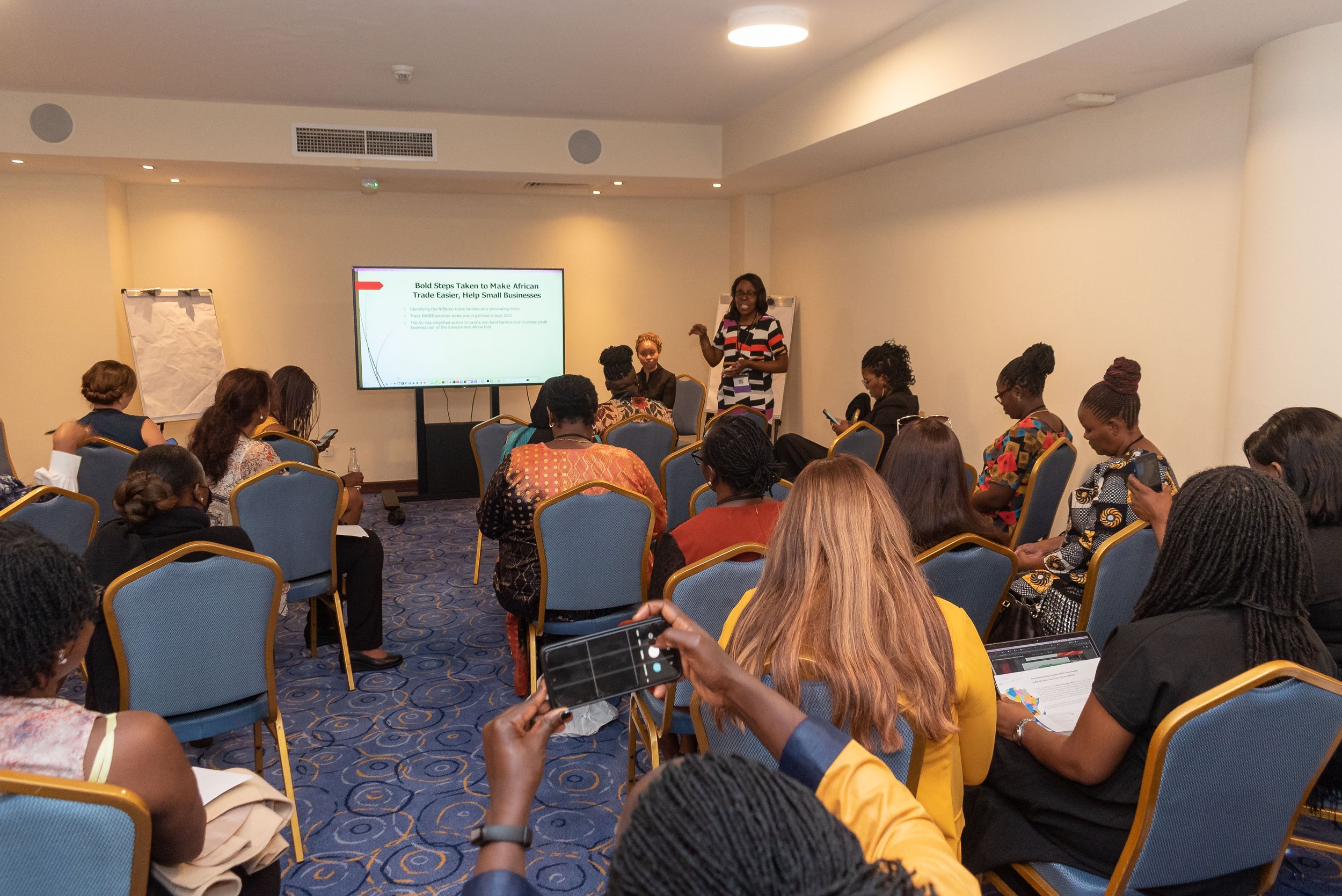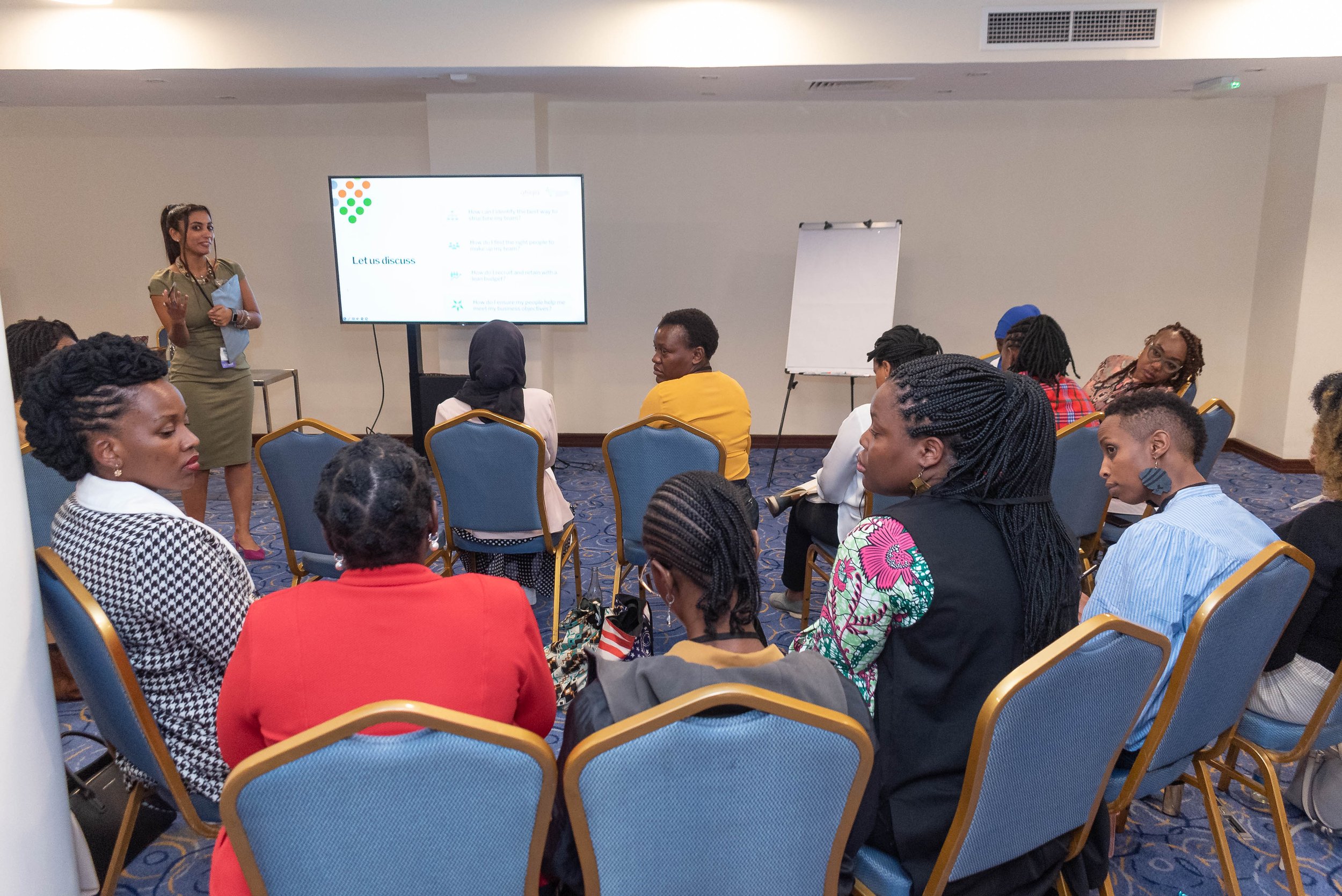The AWEC General Assembly 2023: Highlights from our Event Celebrating Women Entrepreneurs from Across the Continent
The 2023 AWEC General Assembly, hosted at the Mövenpick Hotel & Residences in Nairobi, Kenya from April 12-14, marked our largest event yet. After three years of virtual gatherings, this was our first in-person event, bringing together nearly 300 passionate business owners, entrepreneurs, academics, government officials, and leaders from over 23 countries across Africa who shared our core values of supporting women-owned businesses.
Over the course of three days, our amazing entrepreneurs showcased their diverse talents, knowledge and unique contributions to their communities, creating an energetic and dynamic atmosphere that inspired everyone in attendance.
The General Assembly allowed us to recognize and celebrate our entrepreneurs' hard work and accomplishments while providing the opportunity to learn from experts from around the world to improve, grow, and scale their businesses. Hearing countless women express their joy at finally meeting in person after years of virtual connections was the highlight of the event. We credit this success to an incredible group of women who are passionate about entrepreneurship, building up their communities, and supporting their sisters in AWEC.
Congratulations Cohort 5!
An intimate graduation ceremony for Cohort 5 Fellows kicked off the General Assembly activities. The event was graced by Cohort 2 alumnae, Charlot Magayi, founder and CEO of Mukuru Clean Stoves, who delivered an inspiring opening keynote speech. Charlot emphasized the importance of support systems and networks in a long entrepreneurial journey and encouraged the graduating cohort to leverage the AWEC Alumnae Network (AAN) to enhance their entrepreneurial connections. Along with certificates of completion, the AWEC community recognized and celebrated exceptional fellows who have demonstrated resilience and commitment to the program with the following awards;
Ambassador Award: Adeline Tchekacdio (Cameroon) and Lorraine Muchena (Kenya)
Cooperative Award: Mercy Barasa (Kenya) and Elizabeth Njoroge (Kenya)
Impact Award: Rebecca Omofuriota (Nigeria) and Nozipho Dube (South Africa)
Resilience Award: Doris Mbawala (Tanzania) and Adol Geum (South Sudan)
Champion Award: Iman Ibrahim (Sudan) and Thandiwe Ngulube (Zambia)
Builder Award: Oluyemisi Lawal (Nigeria) and Aminah Adewumi-Inenemo (Nigeria)
The following two days were a mix of facilitated workshops, masterclasses, panel discussions, and small group activities that created a safe-space environment for out-of-the-box brainstorming and bold thinking.
Here’s a sneak peak of insights and takeaways from some of the sessions.
Tips for Pricing Products & Services: Doris Ahiati
Having a clear and effective pricing strategy is crucial for any business. Learning Lab Facilitator and AWEC Mentor Doris Ahiati reminded attendees that it's not just about determining the right price point, but also about understanding the value delivered to the customer and ensuring profitability. Here’s 3 key points business owners should know about pricing;
Establishing sustained product or service demand is crucial: Customers will patronize your product or service in sustainable demand when you offer them at the perceived fair price level. A fair pricing approach can also lead to customer retention and positive word-of-mouth marketing, further boosting demand and increasing brand loyalty. Sustained demand will transform your business with success.
Pricing should reflect value: Customers are looking for high-quality offerings that justify the cost and meet their needs. When it comes to pricing, it's essential that the value of the product or service is reflected.
Don’t sell yourself short: It’s important to set a fair price for your products, services, and even yourself.
Understanding the African Continental Free Trade Area (AfCFTA): Jacinta Kiruthi
Learning Lab Facilitator Jacinta Kiruthi explained that the African Continental Free Trade Area (AfCFTA) is a revolutionary initiative that aims to create a single market for goods and services in Africa, facilitate the free movement of people, and spur economic growth and development across the continent. With a special emphasis on protecting micro, small, and medium-sized enterprises (MSMEs), in which women and youth actively participate, AfCFTA will integrate them into continental markets, breaking the barriers they face or encounter as they try to penetrate more advanced regional markets.
However, for AfCFTA to benefit small and medium businesses, Jacinta recommended the following steps need to be taken:
Strengthen small business readiness and participation: Equip MSMEs with the necessary skills and tools to participate in regional and continental markets through training programs, awareness campaigns, and initiatives that promote market intelligence. This includes providing more opportunities for MSMEs to engage in trade regulators via round tables, trade forums - MSMEs must have a platform to engage with trade regulators at all levels. Roundtables and trade forums create an opportunity for MSMEs to voice their concerns, suggest solutions, and navigate trade regulations.
Create and maximize awareness: Make small businesses aware of market opportunities available under AfCFTA through governments and business support organizations, ensuring they take full advantage.
Mobilize business support enablers: Engage governments and business support organizations to help MSMEs access necessary resources and information to succeed in regional and continental markets, including strengthening national chambers and taking advantage of AfCFTA initiatives and programs.
Strategies to Building a Team on a Lean Budget: Maryam Darwich
Learning Lab Facilitator and AWEC Alumna Maryam Darwich's session aimed to help attendees increase awareness of identifying recruitment needs, key components of hiring plans, and strategies for recruiting and retaining talent on a lean budget. Additionally, Maryam highlighted the importance of onboarding in the process of building a successful team and identified five essential elements to consider when onboarding new employees, referred to as "the 5 C's of employee onboarding" from Dr. Talya Bauer's research over 25 years.
The five essential elements of onboarding are as follows:
Compliance: ensuring that new employees complete the necessary paperwork, the badging process, and obtain the equipment and workspace they need to perform the job.
Clarification: clearly defining performance expectations and ensuring that new employees understand their roles.
Confidence: providing new employees with the skills and knowledge they need to excel and tackle new challenges.
Connection: making new employees feel valued, recognized, and accepted by colleagues and the organization.
Culture: helping new employees understand the company's values, mission, vision, policies, and performance management through stories, meetings with managers, co-workers, and team members from different departments.
By considering these five elements, companies can build an effective onboarding process that helps new employees acclimate to the job, feel included, and ready to tackle new challenges.
Innovating Your Business Model to Domesticate Your Supply Chain: Dr. Gordon Adomdza
Learning Lab Facilitator and AWEC Session Leader Dr. Gordon Adomdza's session highlighted the importance of domesticating one’s supply chain to enhance business resiliency in the face of pandemics, climate catastrophes, and inflationary pressures. All businesses, including services, have supply chains that have become globally connected due to globalization and technology.
To innovate your business model and rethink your supply chain, Dr. Adomdza recommended the following;
Using the Business Model Canvas (BMC): The BMC is a tool that can help businesses map out your current business model and identify areas for improvement, including key partners, activities, resources, value proposition, customer segments, relationships, channels, cost structure, and revenue streams.
Identifying supply chain points that need improvement: Mapping out your supply chain across key partners and customers on the BMC is essential to understanding where your supply chain is globally connected and where you may need to consider domesticating your supply chain to increase resiliency against future crises like pandemics, climate catastrophes, or inflationary pressures.
Overall, businesses must innovate their business models by domesticating their supply chains and identifying areas of improvement to ensure long-term success and resilience.
Business Clinics and Business Dialogues, Implemented in Small Groups
During Business Clinics, attendees collaborated in small groups with mentors, volunteers, and staff to implement innovative strategies and techniques such as using design thinking to create solutions for everyday challenges. Through the Business Dialogues, attendees had the chance to learn from each other's experiences while facilitators also provided valuable insights and feedback in an informal and conversational group setting.
Dialogues covered a range of emerging trends and contemporary issues affecting entrepreneurs with an emphasis on innovation. Topics explored included, ‘Business Planning & Forecasting’, ‘Legal Documentation for Business’, ‘Product Market Fit’ and ‘Creative Ways of Positioning Your Business to Attract Capital.’
Viewing AWEC Through a Mentor Lens
Each year, AWEC's mentorship program selects professionals from around the world to volunteer their time to mentor Fellows for one year. This element of the program proves beneficial for both parties as they navigate through business challenges together. During the General Assembly, AWEC alums had the pleasure of meeting their mentors in person (some for the first time). We interviewed several mentors, including Nana Ahwoi, a Partner in EY's Cybersecurity and a mentor at AWEC for the past two years.
Nana Ahwoi expressed her delight as a first-time attendee at the AWEC General Assembly and shared how impactful the experience was. “As a first time attendee, I did not know what to expect from the AWEC General Assembly, and I'm thrilled to report that I found it highly impactful. Surrounded by, and in the midst of, extraordinary African women entrepreneurs, the inspiration from the participants and speakers was tremendous and the energy beyond electrifying. The insights, and of course the hair and fashion was unlike any other. I was struck by the vast reach of AWEC and its cohorts. At a 1000 strong alumnae network, their impact will be felt far and wide.”
The planning and execution of the AWEC General Assembly provided an unforgettable experience filled with valuable insights and opportunities to connect with like-minded individuals.
As we return to business as usual, we hope that attendees carry with them the inspiration, ideas, and connections that they have made during the event, enabling them to look forward to the possibilities that the future holds. We extend our gratitude to everyone involved in making this event possible, and eagerly anticipate the next opportunity to gather and connect with our AWEC community.
